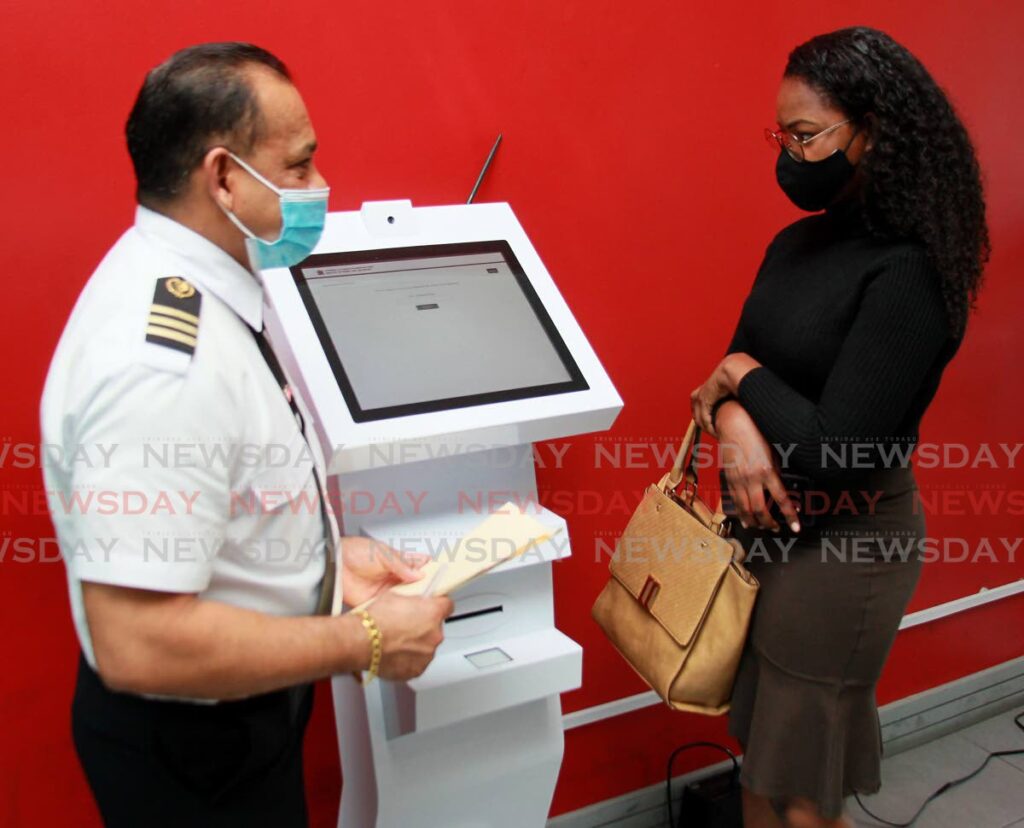Digitising Trinidad and Tobago: what's holding us back?

From 2021, in the midst of the covid19 pandemic, businesses worldwide were left with no choice but to make a massive shift and use technology to stay afloat. People did everything online, from getting food to working.
Now, the Government is promoting a policy of digitisalisation. Plans came up in the 2021-2022 and the 2022-2023 budgets for turning Trinidad and Tobago into a digital nation.
Communications officer of SkillPik Natalie Williams agreed with the plan and said there is much to consider for the fiscal year, summing up her perception of the Government's digitisation plan in one simple quote: "Supporting innovation will ultimately encourage growth."
She said, “Further tax exemptions for tech companies will therefore play a significant role in
stimulating digitisation in the industry and recognising innovation on a national scale can provide further incentive.”
This comes after Finance Minister Colm Imbert announced, in the 2021-2022 budget, a five per cent reduction in tax for three years for small-medium enterprises whose core purpose is digitisation.
Williams said organisations also have a role to play, which is offering funding and assistance in the form of new technology, and can also cultivate networks in financial institutions, universities and other organisations.
“These networks and the information flow at their disposal will enable the reduction of many of the risks associated with new enterprise formation and thus overcome many of the barriers that hold back innovation.”
She added that another way of achieving this would be to create a working environment that will result in stability and assured results.
“Foster an enabling environment by ensuring the legal and regulatory framework accommodates the continued transformation. There has to be alignment to the global economy so that foreign investors are not prevented or deterred, and...local businesses feel enticed to also transform the way they do business.”
In addition, she said, national initiatives and policies must be executed swiftly, as they are crucial for the transformation.
This comes after projects such as cashless transactions, WiFi hubs, digital-skills training hubs and online local marketplaces were mentioned in the last two budget readings.
“As we attempt to close the digital divide, we must also recognise the opportunity to learn from other countries and develop tailor-made solutions which are specifically geared to address our own unique needs in TT. Shifting culture at a faster pace may amplify competitiveness on a global scale, which can reduce the gap between words and actions as technologies develop at an exponential rate.”

Williams also mentioned a new country strategy that was approved in March 2022 by the Inter-American Development Bank (IDB). This strategy will support the digital transformation of TT’s economy. The aim
is to improve the business environment to enable digital transformation, expand the use of digital tools to improve educational outcomes and digital skills and enhance the delivery of services.
Williams said although this is in the works, these initiatives and others need to be worked on before TT can be successfully digitised.
She explained, "Improving digital infrastructure will need to be multi-faceted. Internet connectivity is one element, but there are other key elements that must be regarded simultaneously.
"There is also the element of reliability – can infrastructure withstand the consequences of climate change?"
Williams said there a need to improve not only infrastructure, but data collection as well. This would entail monitoring and planning the next steps to give a more calculated approach to take more calculated risks.
While these are all priorities for the digital transformation stride, Williams said there must
be programmes to help adults develop their tech skills for the new move.
“While the younger generation may find learning and adapting to new technologies easy, we can’t forget the importance of also developing the skills of the older generation,
who still make a very valid contribution to productivity.”
While Williams offered hopeful measures in the digitisation process of TT, digital strategist Keron Rose had another view.
“To be quite honest, I think I'm just at the point where when the government speaks about digitisation, it's been such a buzzword for years that I'm a bit sceptical now. I need see something tangible, and not just another launch of something for the headlines, but something where the impact is felt in our community.”
Rose referred to the WiFi hub initiative that was talked about in the previous budget, and said he knows it’s a good thing, as many have accessibility issues. He then touched on Parlour Caribbean, an online shopping platform to bring awareness of Caribbean culture and offer a different shopping experience whatever the shoppers’ geographical location.
“The Government is big on Parlour Caribbean and pushing the artisan community to sell online, and they spoke about it as if this was a problem.
"However, we have been able to sell online for years, whether that be through building their own websites or using any of the other 50-plus online marketplaces that already exist in TT.”
Rose has an extensive list on his website at keronrose.com, with over 40 marketplaces listed.
He added, “So at this point, their plans are a wait-and-see for me.
"There are many other things that businesses can do on their own with respect to digitisation, selling online and earning their own foreign exchange, and the real issue is simple: we need more education on the plethora of tools that we already have at our disposal.”
Acting Telecommunications Services of TT (TSTT) assistant general manager emerging services and innovation Keino Cox, who is responsible for Parlour Caribbean said inclusive of their shopping platform they are offering Parlour University.
"Parlour University is an online platform built into Parlour Caribbean which we have master classes on product placement and branding and how you get your products export ready and so forth. As we speak there are memorandums of understanding (MoU) and key local entities which I can't disclose right now. But in the realm of best practice certification for product quality and so forth, testing assurance, training artisans so, the Parlour University provides a unique space unlike any other platform."
Minister of Communications Symon de Nobriga added that he attended the opening of the Parlour Caribbean in August and believes it to be quite valuable.
"I did attend the opening and their collaboration with the Export Centres Company Limited was something that I think brings real value to our local artisans as it creates more opportunities for visibility and widens the net for commercial opportunities."
Cox said this helps businesses both regionally and locally export their products safely within the area and even to international markets. He added that right now they have thousands of companies shortlisted to join their platform, but the number of existing patrons could not be made available at the time.
Mark Lyndersay also voiced his opinions on TT's approach to digitisation by referring to an article published on his website, TechNewsTT.
He said, "Creating a digital nation' is listed as priority area seven out of nine and while the list of development goals is probably not organised by priority, there’s little in next year’s Public Sector Investment Programme that establishes any priorities for the new Digital Transformation Ministry."
Lyndersay said while the government wants to focus on international connectivity, which ensures people can still access information and services in the event of a connectivity disruption, there are other aspects to focus on.
"While this is sensible thinking, it isn’t the only reason why local state datasets should be hosted locally. International data connectivity isn’t even the most important one. There are issues of privacy and sovereignty inherent in the management of state datasets and they aren’t discussed anywhere."

Comments
"Digitising Trinidad and Tobago: what’s holding us back?"